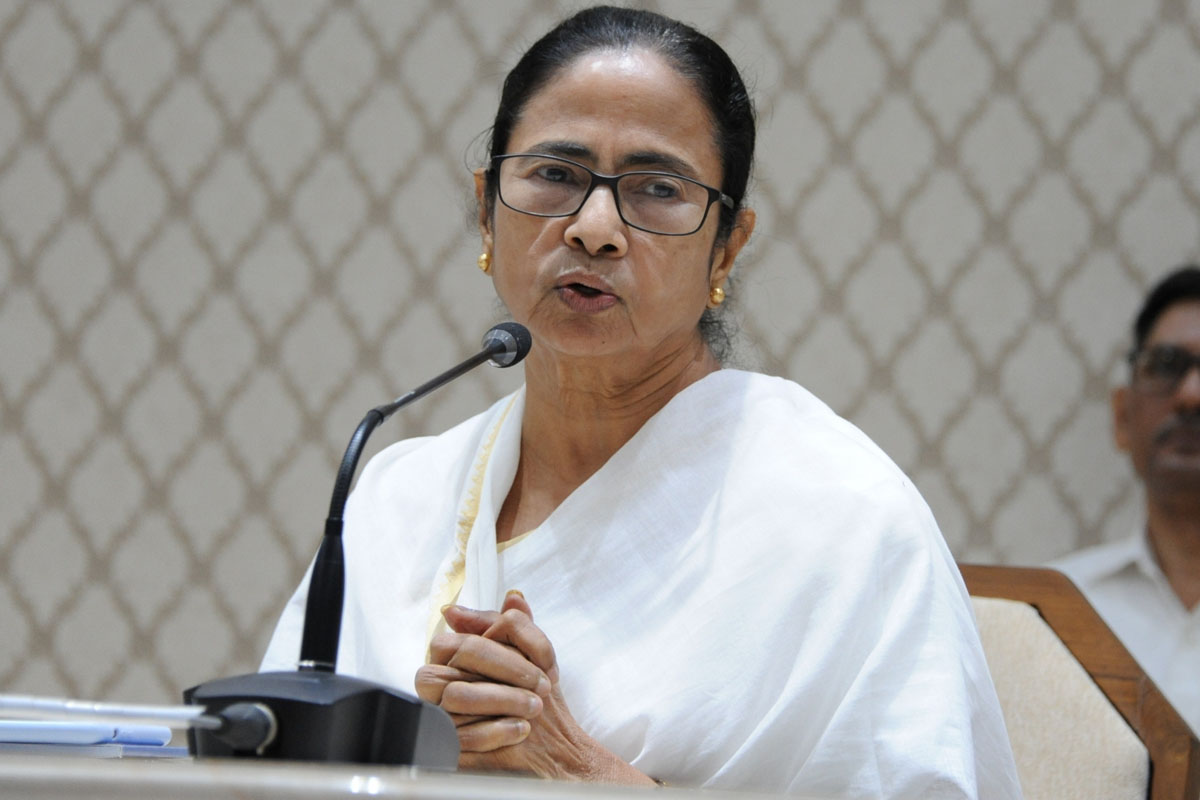Owing to a fund crunch because of the huge financial drain to meet the commitment of the social schemes launched by Chief Minister Mamata Banerjee, the West Bengal government is slowly leaning towards central projects that had been strongly opposed by the ruling Trinamool Congress.
Though the state government is yet to make a final policy decision regarding taking the Centre’s share in the different ongoing schemes in the state, top officials have already instructed all the departments to look into whether the financial benefits of the central projects can be used in various projects in the state.
Advertisement
The two areas where the state has already given the nod for central assistance are Ayushman Bharat – the health scheme for citizens and ‘Krishak Bandhu’, the crop insurance scheme for farmers. Countering the Centre’s Ayushman Bharat the state had launched its own scheme, ‘Sasthya Sathi Prokolpo’, where all the citizens of the state were given an annual health coverage of Rs 5 lakh.
According to an estimate the state will have to cough up approximately Rs 2,000 crore annually for the successful implementation of the scheme. Even a year back the estimate was around Rs 925 crore but after Banerjee announced before the elections that all the citizens of the state will be covered under ‘Shastha Sathi’ there was a quantum leap in the budget.
There are several other projects that have huge cost involvement and are making a serious dent in the state’s finances. According to officials in the recently announced ‘Lakhmir Bhandar project’ where the state will give Rs 1,000 to women from SC/ST/OBC communities and Rs 500 to women belonging to the general caste, the government has allocated a budget of Rs 12,900 crore for around 1.8 crore women who have so far registered themselves for the scheme.
In addition to this, the state has spent more than Rs 8,277 crore on the Kanyashree project where so far 2,39,66,510 girls were given financial help for their education. The objective of the scheme is to ensure that girls stay in school and delay their marriage till at least the age of 18.
The scheme is divided into two phases. The first is an annual incentive of Rs 750 to be paid to the girls in the age group of 13 to 18 years (studying in Class VIII equivalent or above for every year that they remained in education, provided they are unmarried at the time. The second is a One-Time Grant of Rs 25,000, to be paid after a girl turns 18, provided that she was engaged in academic or occupational pursuits and was unmarried.
“Apart from that, there are several other social schemes like Sabujshree, Jol Dhoro Jol Bhoro, Free rationing system, Duare Sarkar which is also putting huge pressure on the exchequer of the state. Last year due to the lockdown and the pandemic the revenue was very low and this year also the state’s economy is just showing signs of improvement and in this condition, it is getting difficult for the state to carry on with its development works and at the same time continue with the schemes,” a senior official of the finance department said.
Though Mamata Banerjee is yet to take a policy decision to allow central schemes in the state, there are indications that the state government is turning soft towards using the central grants in the state-run schemes. The state is already taking a large stake in the central project in the field of health infrastructure. In other cases, officials from different departments are examining the possibilities.
Though Banerjee was strongly against the PM Kisan Yojna – the central scheme to assist the distressed farmers and launched her own ‘Krishak Bandhu Prokolpo’, recently the state has given the nod for PM Kisan Yojna in the state.
However, the state has not yet agreed to all the central projects. It has not yet approved the Centre’s Formalization of Micro Food Processing Enterprises or FME project. There are some projects where the centre and the state have an equal share.
“If the centre can give their name and the photo of the Prime Minister then why can’t we use our own name and give the photograph of the chief minister because we have an equal stake in the project?” an official questioned.
It is obvious that state Secretariat Nabanna leaving its earlier hard stance has become much more lenient towards the central schemes.
“There is no reason to neglect all the projects and we should try to get a central partnership wherever possible. The state is not in a position to ignore central funds. More importantly, we need to understand that the centre itself does not pay! The states pay a share of the money they collect in taxes. So it is the state’s money that is coming back from the centre and there is no reason for not taking it,” the official added.











